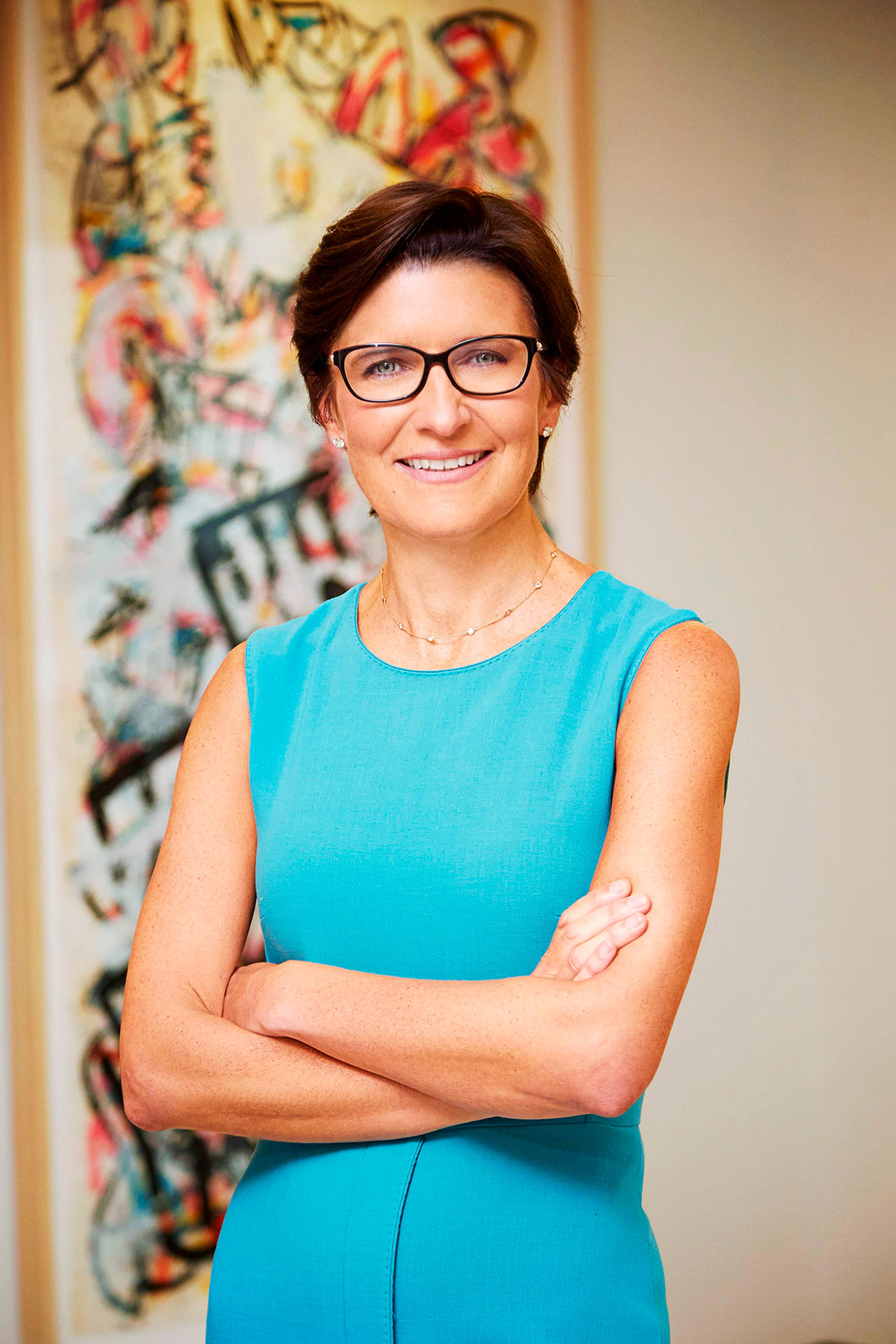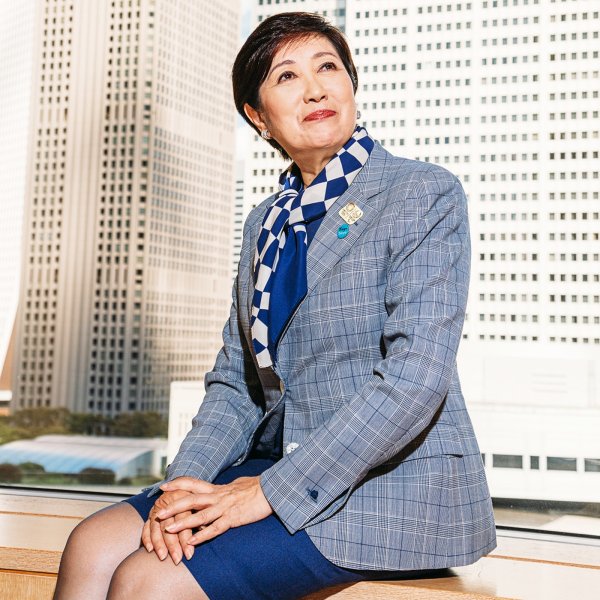(Miss this week’s The Leadership Brief? This interview below was delivered to the inbox of Leadership Brief subscribers on Sunday morning, Oct. 26; to receive weekly emails of conversations with the world’s top CEOs and business decisionmakers, click here.)
Jane Fraser’s promotion as the incoming CEO of Citigroup will make her the first woman to head a major Wall Street bank. Fraser’s rise is the result of a multiyear effort at Citi, the $74 billion financial-services giant, to increase diversity throughout the organization. Citi’s three-pronged approach focuses on recruitment, development and retention, and pays particular attention to promotion paths.
Fraser has an M.B.A. from Harvard Business School and an M.A. in economics from Cambridge University; she joined the bank in 2004, after starting her career at Goldman Sachs and later becoming a partner at McKinsey. She says Citi’s approach has helped explode the myth of a pipeline problem. “The talent exists, full stop,” she says. “And it’s time to kill the notion that there’s a trade-off between diversity and meritocracy.”
Fraser, who is currently the president of Citi and also CEO of global consumer banking at the company, is scheduled to assume the CEO chair in February. She recently joined TIME for an email exchange on how to build a culture of diversity, the efficacy of virtual road shows and the best way to support stressed-out employees.
Subscribe to The Leadership Brief by clicking here.
(This interview with incoming Citi CEO Jane Fraser has been condensed and edited for clarity.)
Can you describe the philosophy and policies that resulted in your appointment as CEO?
What we’ve really tried to do at Citi is make sure diverse candidates see us as a place where they can thrive and advance their careers. Things like strong parental-leave policies and maintaining an inclusive culture can make a huge difference. But to see results, you need transparency and accountability. A few years ago, in a move that was pretty far outside our comfort zone, we publicly disclosed Citi’s raw pay gap for women globally and for minorities in the U.S. Even now, we are only one of a small handful of companies to do so. The data revealed we have a lot of work to do to get more women and people of color in senior and higher-paying roles. But we think it’s essential to give people the information they need to hold us accountable for progress.
Are there economic and organizational benefits to your organization and society at large in having a more diverse workforce? Do you believe it creates a bigger pie?
If we take our cues from politics, which has become more divisive than ever, it’s easy to view the world through a zero-sum lens. But nothing could be further from reality, especially when it comes to the workforce. A survey by Harvard Business Review found that diverse companies have significantly higher revenues from innovation and greater margins. Research shows that if women participate equally in the economy, global GDP would increase by 26% by 2025.
The future of work is getting a lot of attention as organizations and societies wrestle with COVID-19, and you are currently instrumental in shaping Citi’s response to the pandemic. What has worked well for you?
I think the word of the day is going to be flexibility. We will have to be more accommodating to our colleagues who want to work from home and from different locations. We’ve proved it can be done successfully. When the pandemic hit, we got everyone up and running at home, and we didn’t miss a beat. In fact, we closed our books for the first two quarters after the pandemic hit without a single person from finance in the office. But ultimately, Citi is in the customer-service business. It’s about relationships. For our colleagues, it’s about teaching and mentoring each other, feeling a sense of belonging. There’s a collegiality you can only get by meeting face-to-face or working side-by-side. Zoom is great, but it’s no substitute. So I’m convinced we will get more of our people back into the office eventually, but only when it’s absolutely safe to do so.
In the long term, how do you think this will change consumer behavior?
From our standpoint, this is a tipping point for digital banking. One report looked at rates of digital adoption by consumers and found that we jumped forward about five years during the first eight weeks of the pandemic.
Do you agree this is a moment for companies to rethink their responsibilities to society?
It’s getting outdated to think about a corporation’s obligation to society separately from its duty to its shareholders. It’s not an either-or. One of the things I’ve been thinking more about recently is how the social movements we are seeing can point the way forward for business. We bankers like to focus on return on equity as a number that measures financial performance. But for society today, the word equity doesn’t appear on a balance sheet. Equity is about the changes we need to make to deliver social justice. Companies like Citi occupy positions of great economic responsibility, and we’ve tried to use our influence to confront inequity in all its forms, whether it’s leading the conversation on equal pay for women, tackling systemic racism in financial services or advocating for environmental justice. And while we are proud to use philanthropy to advance these efforts, the biggest impact we can make as a bank is through our core business capabilities.
What new ways of working will persist beyond the pandemic?
The pandemic has forced us to reimagine how we do business. In normal times, when we bring a company to the public markets our sales force would fly around the world to meet with investors. During the pandemic, we’ve conducted those road shows completely virtually, with no impact to investor demand. In fact, we’ve so far led 75 IPOs this year, compared to 50 over the same period last year. Our private bank has also embraced the moment. Our team holds an event each year for the world’s leading family offices and, pre-COVID, would call it a success if we could convene 150 or so clients. This year, we interacted virtually with 5,000. Even our traders have adapted and thrived. They’ve had to navigate some of the most turbulent market swings in history, and with our trading floors closed, they’re doing it seamlessly from their kitchen tables and home offices.
Many employees are anxious and overwhelmed. How do you support them at this moment?
From day one, we’ve made sure our employees understand that their health and well-being must come first. So many of us are confronting unprecedented challenges during this crisis, and we’ve made sure we are doing everything we can to provide relief. During the pandemic’s early days, we provided a special compensation award to more than 75,000 of our colleagues around the world to help ease the financial burden. We’re offering options for childcare and in-home care. We’re offering discounted tutoring and test prep to help our families balance work with their kids’ education. We’ve enhanced health resources, including for mental health. At the same time, we’re making sure we don’t pile on the anxiety our colleagues are feeling with any pressure about returning to the office. We aren’t rushing the return. And when we do make decisions about reopening offices, we help everyone understand why and how those decisions are being made. I’m convinced you can’t go wrong when you act with empathy. It’s O.K. to show a bit of vulnerability. Maybe that’s one of the advantages of being a woman. It’s something I’m much more comfortable doing than some of my male colleagues might be, and I don’t feel that’s in any way soft or weaker. I actually think it’s much more powerful.
In the near and medium term, what concerns you and what makes you optimistic?
The wealth gap is disrupting society and has caused people to lose faith, and so much of the problem comes down to access. I worry that the pandemic is only making it harder for people to get the education they deserve, the health care they need, the jobs that will give them financial security. The average Black family in America has just one-tenth the wealth of the average white family—and that was before the pandemic hit. So when people surmise about a V-shaped or U-shaped recovery, what we’re most likely to see is a K-shaped path where high-skilled workers may come out even stronger while those with historic disadvantages continue to experience a decline. But I also have a lot of hope that this crisis can serve as a wake-up call for our industry. It’s one of the reasons why we recently committed more than $1 billion in strategic initiatives to break down barriers of systemic racism and increase economic mobility in communities of color. At Citi we’ve really made that a core part of our mission by working to increase the flow of capital into communities of color and minority-owned businesses and through strategic investments expanding access to housing and education.
FRASER’S FAVORITES
BUSINESS BOOK: When Genius Failed by Roger Lowenstein.
AUTHOR: Jan Morris.
APP: Instacart.
STRESS RELIEF/EXERCISE: Hikes on the weekend.
Subscribe to The Leadership Brief by clicking here.
- Cybersecurity Experts Are Sounding the Alarm on DOGE
- Meet the 2025 Women of the Year
- The Harsh Truth About Disability Inclusion
- Why Do More Young Adults Have Cancer?
- Colman Domingo Leads With Radical Love
- How to Get Better at Doing Things Alone
- Michelle Zauner Stares Down the Darkness






